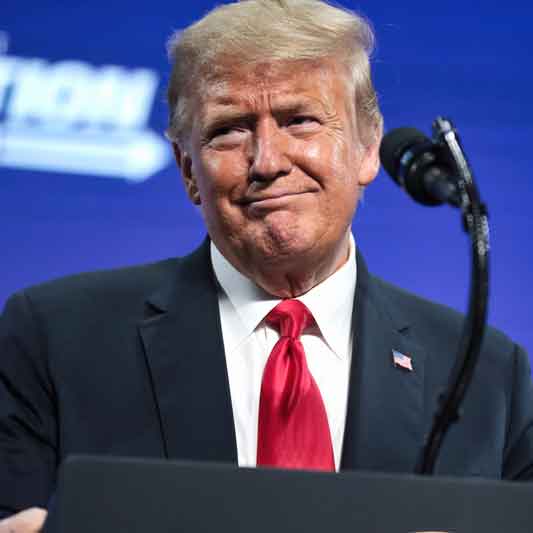The Pentagon has stripped retired General Mark Milley of his security detail and clearance while launching an investigation into his conduct, marking an unprecedented retaliation against the former chairman of the Joint Chiefs of Staff who served during President Donald Trump’s first term.
Defense Secretary Pete Hegseth directed the action on January 29, 2025, as one of his first acts in office. Pentagon spokesman John Ullyot confirmed that Hegseth informed Milley that his security detail authorization was revoked and his security clearance suspended. The Defense Department’s Office of Inspector General received orders to conduct an inquiry into Milley’s conduct to determine whether reopening his military grade review is appropriate.
The investigation could potentially result in Milley losing one of his four stars in retirement. Acting Defense Department Inspector General Stephen Stebbins is reviewing the request to examine whether the retired Army general should face demotion.
Trump previously accused Milley of treason for phone calls he made to his Chinese counterpart during the final weeks of Trump’s first presidency, including after the January 6, 2021 Capitol riot. Milley reportedly used one call to reassure China that the United States would not launch a nuclear strike. Trump described those calls on social media as “an act so egregious that, in times gone by, the punishment would have been DEATH!”
Milley testified that the calls were coordinated with defense secretaries and were routine communications within his job scope. The calls aimed to de-escalate tensions as Chinese officials expressed concerns about observations of instability in the United States.
The former general’s relationship with Trump deteriorated significantly during their time working together. Milley pushed back against Trump’s interest in using military forces domestically against protesters following George Floyd’s death. He also apologized for participating in a photo opportunity at St. John’s Church in June 2020 while wearing military fatigues, after federal officers cleared social justice protesters from Lafayette Park.
In Bob Woodward’s book “War,” published in 2024, Milley characterized Trump as “fascist to the core” and “the most dangerous person to this country.” The book revealed that Milley feared Trump would attempt a coup after losing the 2020 election and made preparations in case such plans were executed.
During his September 2023 retirement ceremony, Milley delivered pointed remarks widely interpreted as directed at Trump. He emphasized that military personnel “don’t take an oath to a wannabe dictator.” The general stressed that service members take oaths to the Constitution and the idea of America, expressing willingness to die protecting those principles.
The Pentagon also removed Milley’s portraits from prominent displays within the building. His portrait as Joint Chiefs chairman was quietly taken down on January 20, 2025, during Trump’s inauguration. A week later, another portrait depicting his service as Army chief of staff was also removed, leaving visible gaps in hallways that chronicle military leadership history.
Defense Department Chief of Staff Joe Kasper justified the actions by stating that undermining the chain of command is corrosive to national security. He indicated that restoring accountability represents a priority for the Defense Department under Trump’s leadership.
Former President Joe Biden issued Milley a preemptive pardon on January 20, 2025, along with several other officials who might face retribution from the new administration. Biden’s statement clarified that the pardons should not be interpreted as an acknowledgment of wrongdoing by those covered.
Milley expressed gratitude for the pardon, explaining that he did not want to spend his remaining years fighting those who might unjustly seek retribution. He emphasized concerns about protecting his family, friends, and former colleagues from the resulting distraction, expense, and anxiety.
The security protections were originally provided after Trump ordered the 2020 military strike that killed Iranian General Qassim Soleimani. Intelligence assessments indicate Iran maintains intent to seek revenge for the killing, with active threats still directed against Milley’s life.
Trump’s administration has similarly revoked security protections for other former officials from his first term, including former Secretary of State Mike Pompeo, former National Security Adviser John Bolton, former Iran envoy Brian Hook, and former health official Anthony Fauci.
The treatment of Milley has generated notable silence from military advocacy organizations and current leadership. Multiple current and retired general officers declined to comment on the actions, even under conditions of anonymity. One recently retired general described Milley as “as radioactive as it gets,” illustrating the widespread concern about potential retaliation from Trump and his allies.
White House Press Secretary Karoline Leavitt defended the decisions, arguing that such individuals should not retain security clearances and private details indefinitely at taxpayer expense. She noted that the affected individuals possess sufficient wealth to obtain private security if desired.
The Association of the United States Army, which funded Milley’s portraits through donations, confirmed it has provided portrait funding for outgoing Army leaders and Joint Chiefs chairmen for three decades. The portraits will be returned to the appropriate military history centers.
The actions against Milley represent what observers describe as an unprecedented effort to erase a retired general’s service record and punish him in retirement. The Pentagon serves not only as office space but as a living memorial of military history, making the portrait removals particularly symbolic of the administration’s approach to former officials who criticized Trump.

